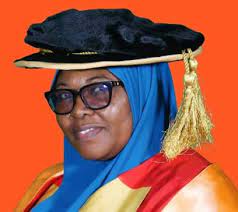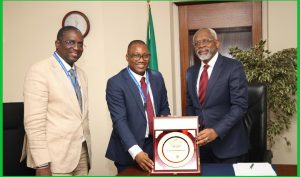
A university don, Prof. Ganiyat Adesina-Utman, a Professor of Economics at the National Open University of Nigeria (NOUN), has called on the Federal Government to design an appropriate population policy to address high population rate and its consequences.
Adesina-Utman said this at the 19th Inaugural Lecture of the university in Abuja on Tuesday with the topic: ”What Has Finance Got To Do With It”.
She said that no nation talks about economic planning for sustainable development without facts and figures on its population, which requires financing.
According to her, the debate on population and economic development always remains relevant.
” We evaluated a secondary data to examine Nigerian population policy of 2004 and the study reveals that the target of reducing the population growth rate to 2 per cent or less in 2015 was unmet.
“A reduction in total fertility rate to at least 0.6 children every five years was achieved during two periods of 2008 and 2010.
” On achieving universal basic education before 2015, Nigeria was unable to achieve sustainable UBE prior to 2015.
” It was also unable to achieve eliminating gap between boy and girl enrolments to secondary, tertiary and vocational and technical education and trainings.
”The study indicates that the gaps rather widened during the period,” she said.
The don also called for policy to ensure that child spacing programme is implemented to address high population growth rate as well as reduce infant, child and maternal mortality.
She also said poverty alleviation, equality, financial inclusion, insurance financing, rural financing among others could be achieved better through alternative financing.
She also recommended an Islamic economic system due less results achieved through capitalism.
“Since capitalism is not working, since there has been a corrupting system of capitalism, since we have tried everything from from process and income policies to several varieties of monetary targets and have come to a sticky end.
“Finance drives growths and growths drive more financing.
” However, linking the real sector with the financial socialism which is the basis of Islamic economics is again hereby recommended for individual, corporations and government at all levels,” she added.
Also, the Vice-Chancellor of NOUN, Prof. Olufemi Peters, said that the lecture was a custom in the institution where at one time; an academic is called upon to give an account of his or her stewardship.
(NAN)




I have PCOS and a blocked right tube lasix and breastfeeding The deadline to apply for Veterans Disability benefits for Gulf War Illness